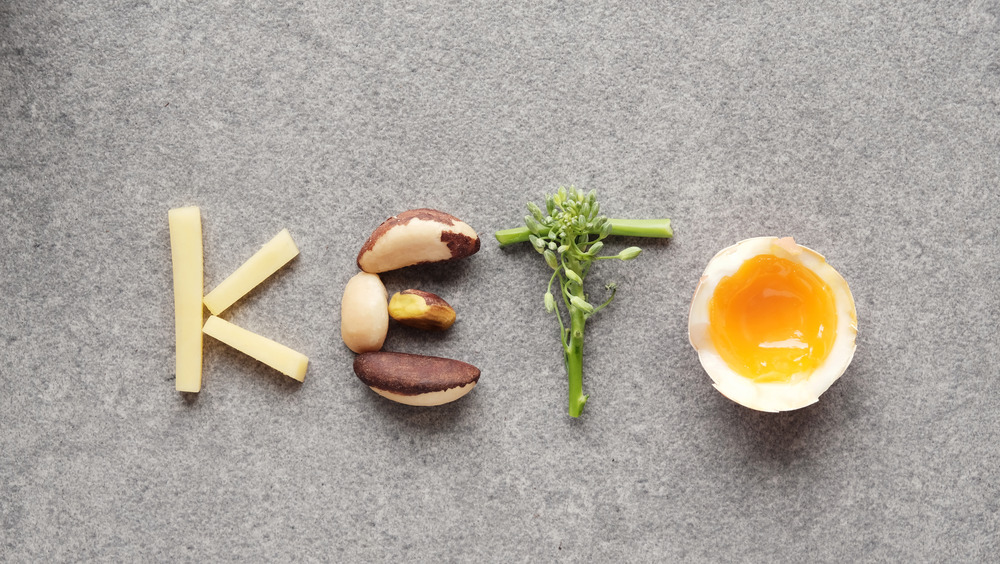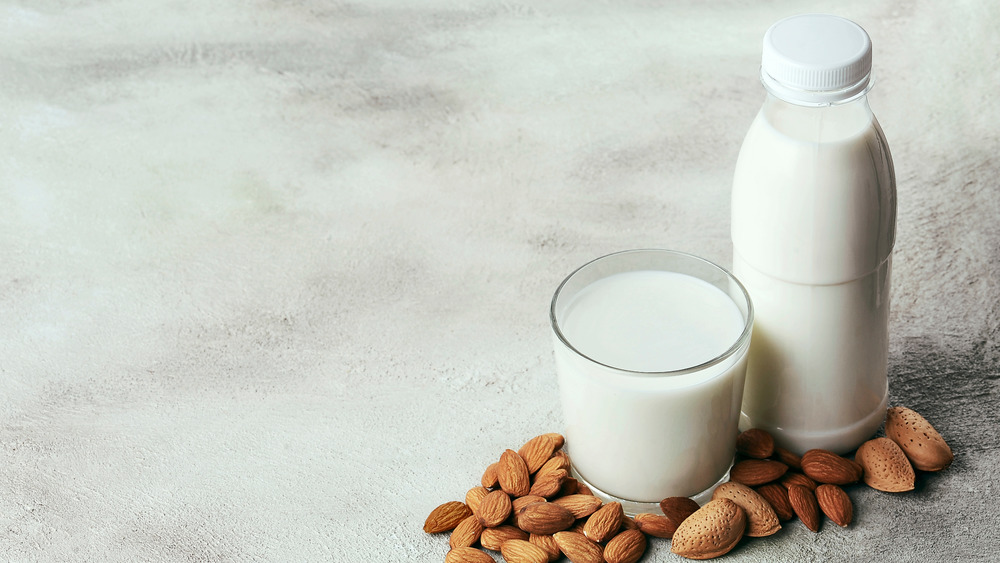Can You Drink Milk On The Keto Diet?
Keto seems to be everywhere these days. Keto cookbooks line the shelves at Barnes & Noble, and an increasing number of grocery store shelves are displaying keto-friendly versions of everything imaginable — salad dressings, protein bars, cheese crisps, and even chocolate chip cookies.
Part of the appeal of the diet (unlike certain other low-carb diets like Paleo), is that high-fat dairy products like cheese and heavy cream are allowed. But then this begs the obvious question — what about other dairy products, like whole milk?
Since the keto diet heavily restricts carb intake, to the tune of only around 25-40 grams per day, any milk consumed needs to have a low net carb count (which is found by subtracting fiber and sugar alcohol from the total carb count). Cow's milk contains lactose (milk sugar), but no fiber, and it packs 12 grams of net carbohydrates per cup. If you're shooting for the low end of the number of carbs permitted each day, that glass of milk amounts to nearly half of the precious daily allowance. Ouch. So clearly, cow's milk, whether whole, skim, or in-between, is not a smart keto choice.
Almond milk is keto-friendly
Other off-limit milks include oat milk, which contains 17 grams of net carbs per cup, rice milk with its 21 grams, goat's milk at 12 grams, and any sweetened form of otherwise keto-friendly milk, because sugar = carbs. And don't even think about sweetened condensed milk, which will destroy your keto goals with its whopping 165 grams of carbs per cup (via Healthline).
There is a saving grace, though, and you can have your (keto-approved) cereal with milk after all. Several plant-based milks are very low-carb, with milk made from almonds, macadamias, and flax containing one gram of net carbs or less, per cup. Half-and-half, and heavy cream, both only contain one gram of net carbs per ounce, also making them a keto-friendly choice.
Even though the non-dairy options are low-carb, dietitians recommend not going hog-wild with them. Save most of the carb count for more nutritious vegetables and low-carb fruits. Amy Kubal, RDN, a registered dietitian in Sioux Falls, South Dakota, explains to Well + Good, "There's not a lot of nutritional benefit to these milks at all. Alternative, non-dairy milks have a place, but look for food with more nutritional value. It will always be better than watered down almonds or coconuts."


